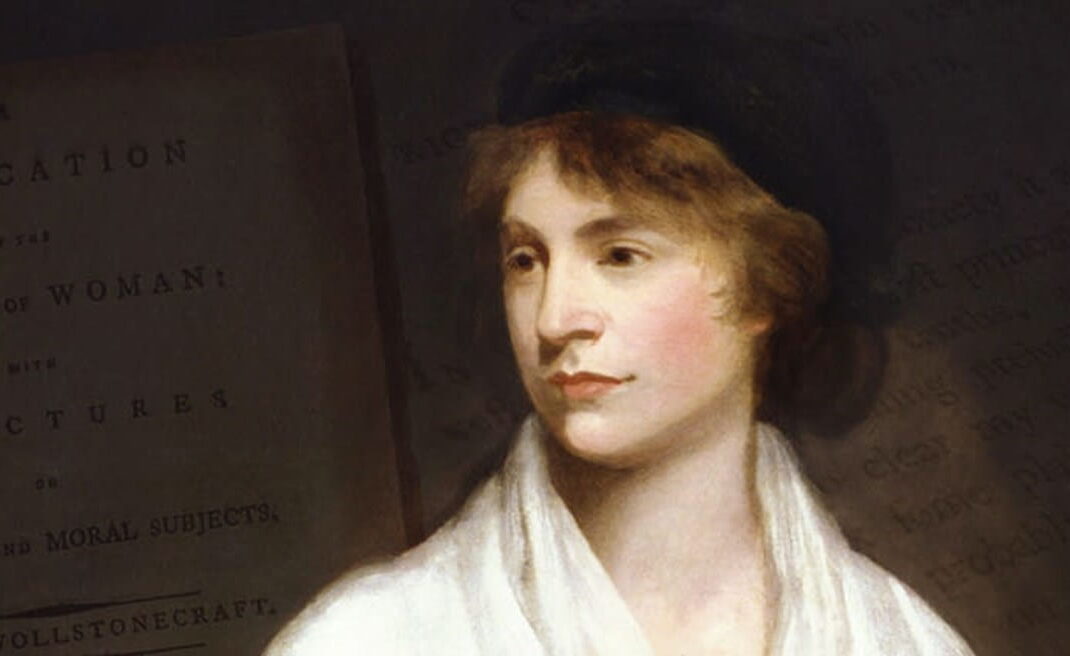Philosophy in Schools
The case for expanding and developing the teaching of philosophy in British schools

Philosophy and Intellectual Development
One key gap in the national curriculum is that it does not cover the longer time horizons of human history, expanding the place of philosophy in schools would give students an overall schema into which broader cultural knowledge could be integrated.
The absence of this broader understanding of intellectual history leads to a Balkanization of knowledge, where students have knowledge of particular periods of history but lack an understanding of where these periods fit in the wider sweep of history, where they understand areas of scientific knowledge without having an overall sense of the project of scientific enquiry itself and the place of different sciences within it.
Philosophy studies the history of how human communities have understood their universe, themselves and their society. Philosophy inducts students into these living questions of the nature of reality, of human consciousness, ethical conduct and just political society by orienting them in the long historical sweep of philosophical debates on these questions. As such philosophy offers ‘powerful knowledge’, knowledge that allows students to build schemas into which large areas of cultural and scientific understanding can be ordered.
Students on philosophy and their intellectual development
“Philosophy matters to me because we are constantly frustrated by the lack of a correlation between our understanding of the world and the language available to us. That frustration is some fundamental part of the human condition, the authenticity of being isolated, the inherent humanity of loneliness. We can form beautiful connections by getting the gist. In philosophy, we try to get the gist. I like that about it.“
“Philosophy matters to me because it is like a desire path of wisdom and curiosity through the overwhelming uncertainties and challenges developed through life. It allows everyone to question everything right to their very existence, inviting them to reshape their beliefs using logical reasoning. Philosophy has shown me that whenever a door has been shut through questions that were thought to have no answer, a window of new ideas and opportunities will always be open.”
Philosophy matters to me because it evokes a genuine sense of wonder, it helps me broaden my understanding of the world around me and ultimately has shaped me to become more inquisitive. I love to learn how different theories play into my everyday life. Now even politically and religiously philosophy is a key component in broadening my knowledge and making me more of a well-rounded person. Philosophy has shaped my life, from my morals to the everyday small actions that I may do. Philosophy has always guided me, and I truly appreciate it. Studying philosophy has really opened my eyes and made me think creatively, more out of the box, and I’ve become more open to fresh new perspectives, treating every opinion with fascination and understanding.

Philosophy and Democratic Education
We believe that expanding the place of philosophy in UK schools would substantially improve students’ democratic education. Although schools are directed to teach the British values of Respect & Tolerance, Individual Liberty, The Rule of Law and Democracy, they tend to be presented to students as straight principles, without enough intellectual context or reasoning, and students are not given a chance to practise their commitment to these values in open discussion.
This is a missed opportunity for many reasons. The intellectual history from which belief in democracy, the rule of law, individual liberty, mutual respect and tolerance of those of different faiths and beliefs emerged is in large part Britain’s own history since the 19th Century. Philosophy teachers have both the expertise to teach the substance and significance behind our commitment to these values as well as the skills to guide students to exhibit independence, freedom of thought, and critical thinking in their discussions, practising some of the key democratic virtues these values are intended to allow to flourish.
Students on philosophy and democratic education
“Philosophy matters to me as it asks questions about society and all that is around us, not simply adhering to what we are shown or told. It aims at unveiling the truth of what lies deep within the metaphysical and empirical worlds, beyond our everyday understanding and imagination. Philosophy breaks down the boundaries of what would be blindly believed. Philosophy is not just a subject but curiosity, desire and love of knowledge.”
“Philosophy matters to me because it allows me to accurately analyse claims and arguments, which is crucial in a world filled with online and political disinformation. It enables me to distinguish between a valid and fallacious assertion, shaping my viewpoints based on reality, not assumption. This type of comprehensive argument discrimination is unique of philosophy, encouraging me to do deeper research into claims instead of simply taking them to be fact.”
“Philosophy matters to me because it’s fundamentally about reimagining the world – which I think is essential for growth. Philosophy allows for curiosity and self-reflection in a way other subjects don’t. Science, for instance, is the pursuit of verifiable truth about the world, whereas philosophy questions truth itself. In the same way, your view on a person can change entirely depending on attitude, so can philosophy change your perspective on life and its meaning.”

Philosophy and Spiritual Development
A further reason for expanding the place of philosophy in schools is that it concerns itself with the most basic questions of life orientation which students are confronting for the first time. In learning philosophy students are guided through millenia long developments in how human societies have conceived of themselves, their universe and their societies and the grounding arguments for these self conceptions. Philosophy grants students a broad palette to develop their own allegiances to the ideals and insights drawn from the major philosophical works which have shaped our world views since Socrates. Philosophy is never purely a body of knowledge to be mastered as it engages students directly with the always-personal questions ‘How should I live?’ ‘What do/can I know?’, ‘What am I?’, ‘What is my place in the universe?’. Studying philosophy gives students confidence to take these questions seriously for their own lives as well as providing templates and reasoning techniques to make their answers deeply felt and thought.
Students on philosophy and spiritual education
“Philosophy matters to me because it’s an opportunity to take a break from the constant pressure of always being right. In philosophy, I don’t have to agree with everything I hear. The subject broadens my understanding and curiosity for the things around me; it allows me to express newfound opinions I hadn’t ever considered before. Nobody knows the meaning of life, but at least with philosophy, I can know what mine is.”
“Philosophy matters to me because it confronts the unanswerable and challenges established norms. It’s not simply about problem solving but also involves questioning how and why. Philosophy teaches me that learning extends beyond solutions, pushing me to think the limits of what we’re told. It invites me to seek absurdities and explore beyond experience. Philosophy matters precisely because it has no single purpose – only ever-evolving questions. It matters because it teaches me to embrace uncertainty.”
“Philosophy matters to me because it lets me question what is seemingly indubitable. It is so easy for us to take the universe, the human world for granted. And yet philosophy saves us from the surface of things, ‘the unexamined life.’ For example, Martin Heidegger questions the meaning of what it is to be. As such, philosophy facilitates the questioning of things so close and natural to us that they elude us in life.”

Philosophy and Skills
Philosophy teaches students to order their thoughts, going from one idea or claim to the next in a clear and reasoned manner, in order to convey an overall argument, idea or vision to an audience. As an academic subject philosophy exercises students’ minds by asking them to think with the broadest possible scope, at a consistently high level of abstraction, and with consistent logical precision.
Just because it teaches students to think at high levels of abstraction, philosophy is, despite its reputation, a very practical subject: in short, philosophy encourages hard thought about many issues facing us every day. Philosophers have made important contributions to modelling in the social sciences, to the development of computer technology and AI, to legal ideas that have real-world, everyday consequences. As the German Philosopher Humbolt wrote in his report on the place of philosophy in German universities “A sharp knife can cut anything”. The skills philosophy develops in grasping the intellectual structure of problems also make philosophy a uniquely practical subject.
This is reflected in employer’s attitude towards Philosophy graduates. This quote from a tech CEO in The Wall Street Journal is a good example – While we’ve hired many computer-science majors that have been critical team members, It’s non computer science degree holders who can see the forest through the trees. For example, our chief operating officer is a brilliant, self-taught engineer with a degree in philosophy from the University of Chicago. He has risen above the code to lead a team that is competitive globally. His determination and critical-thinking skills empower him to leverage the power of technology without getting bogged down by it.
Students on philosophy and skills
“Philosophy matters to me because through philosophy we explore our own nature (our thoughts, feelings, reason) and how we interact with the external nature of the world and other people. Often when people study philosophy they instinctively consider which framework would help them to improve themselves. That matters to me because it demonstrates goodness in human nature. The curiosity of how our mind works and methods to move forwards with what’s found makes us human.”
“Philosophy matters to me because it teaches me how to live my life. Time to talk and think and live is short, and whether I live to 50 or 100 years, I need to find a way of analysing ideas, to condense a life worth living into the time I have. It matters because it is the purest desire for truth, the most efficient catalyst for human rationality, our most powerful tool – to ask why.”
“Philosophy matters to me because it provides a rigorous framework to examine questions I care about; it trains a person’s logical skills to be sharp and precise, enabling them to reflect, to interrogate their own beliefs, and to think about why and whether their opinion is justifiable. Philosophy is an open avenue to explore the most mystifying questions that the world has to offer—questions that, though often unanswerable, shape the way that we think.”
Publications and Policy Documents
One of our missions at the APT is to work with other Philosophical associations as well as Philosophy teachers and academics to develop a Primary and Secondary Philosophy Curriculum and to advocate and encourage its adoption in schools. You’ll find our current course outline on the relevant pages, Below you’ll find some links our advocacy work directed to policy makers on the merits on expanding the place of philosophy in schools.
